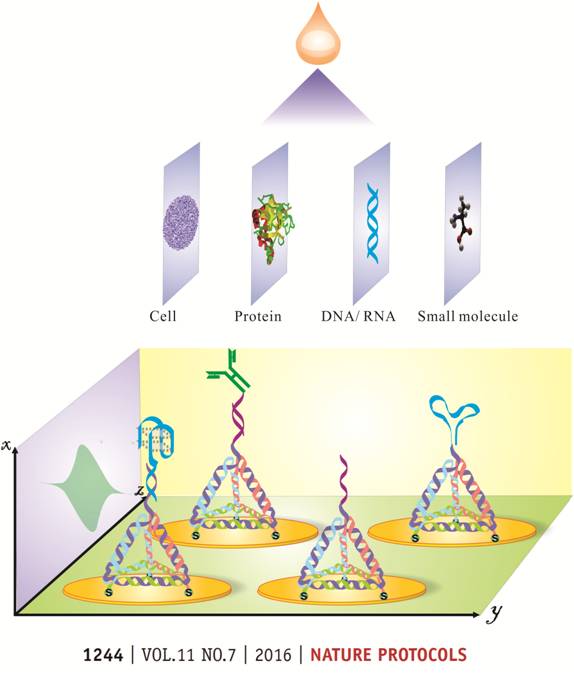Recently, Prof. Xiaolei Zuo from Shanghai Institute of Applied Physics, CAS was invited by Nature Protocolsto write a protocol paper (NatureProtocols 2016, 11, 1244). Xiaolei Zuo and colleagues systematically described a DNA-nanostructure-based universal biosensing platformthat can be employed to electrochemical detection of nucleic acids, proteins, small molecules.
The occurrence and prognosis of many complex diseases, such as cancers, is associated with the variation of various molecules, including DNAat the genetic level, RNAat the regulatory level, proteins at the functional level and small molecules at the metabolic level (defined collectively as multilevel molecules). Thus it is highly desirable to develop a single platform for detecting multilevel biomarkers for early-stage diagnosis. We report a protocol on DNA-nanostructure-based programmable engineering of the biomolecular recognition interface, which provides a universal electrochemical biosensing platform for the ultrasensitive detection of nucleic acids (DNA/RNA), proteins, small molecules and whole cells. The protocol starts with the synthesis of a series of differentially sized, self-assembled tetrahedral DNAnanostructures (TDNs) with site-specifically modified thiol groups that can be readily anchored on the surface of a gold electrode with high reproducibility. By exploiting the rigid structure, nanoscale addressability and versatile functionality of TDNs, one can tailor the type of biomolecular probes appended on individual TDNs for the detection of specific molecules of interest. Target binding occurring on the gold surface patterned with TDNs is quantitatively translated into electrochemical signals via a coupled enzyme-based catalytic process.


